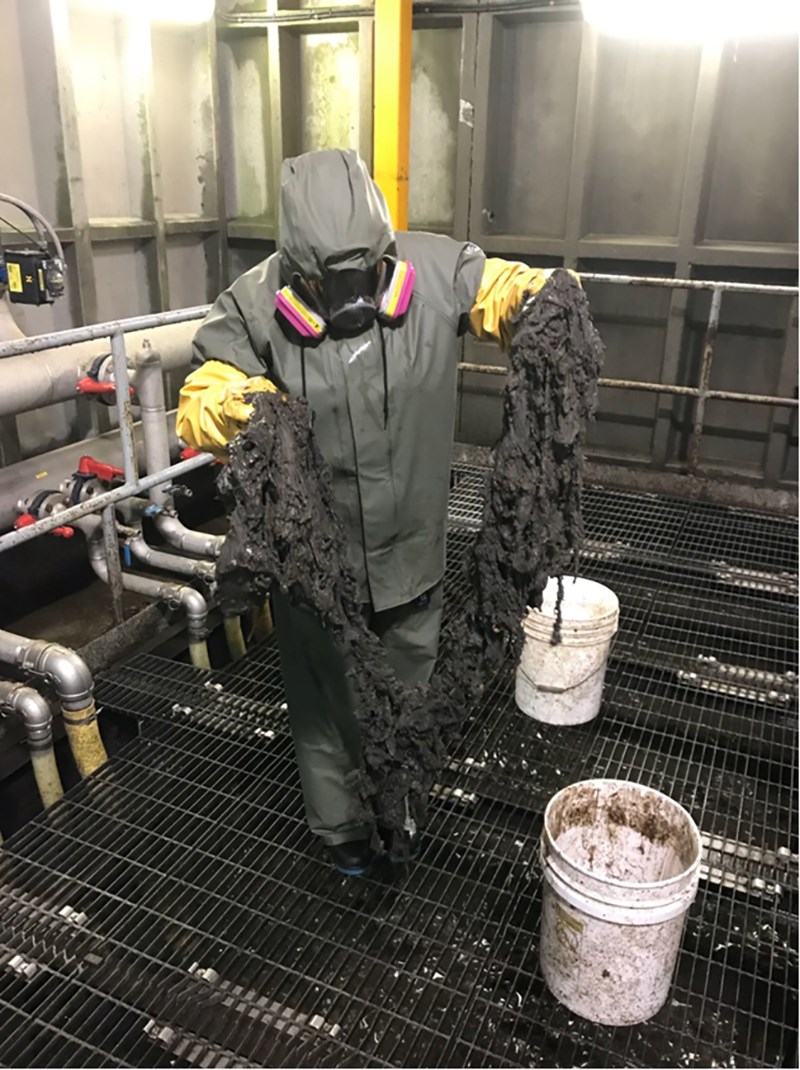While it’s tempting to send all our undesirables down the toilet, we shouldn’t necessarily rush to flush. Filters and pumps at wastewater treatment plants get stressed when anything other than human waste and toilet paper are sent their way.
With the variety of products on the market and mixed messaging from social conditioning, we may understandably be confused about what goes where.
A growing number of products are flooding the market these days, some with the tantalizing but false promise of being flushable or compostable. In truth, there are no standards for these types of labels, so many products get lumped into the same category, even though they behave very differently down the drain.
Fortunately, many of us are waking up to these nuances and are choosing products and disposal methods that are a better fit.
Here is a quick list of what your toilet does not want for the holidays, or ever, really:
1. Wipes of any kind
Baby, hand or countertop, even if labelled flushable. Instead, opt for a sealable container next to the toilet for disposable wipes, or aim for zero waste by using washable wipes made of terry cloth that can be sterilized before reuse.
2. Mop/sweeper heads mats
These are are even more of a nuisance than wipes, being similar in makeup but even larger and more likely to plug things up.
3. Paper towels
These are perfect for backyard composters or any municipal composting program, whether they are bleached or not. Many offices are making a separate collection bin for these in their washrooms, labelled: paper towels only. Taking these out of the waste stream can reduce garbage at schools and offices by upwards of 25 per cent.
4. Tampons and tampon applicators
Even small tampons have string that can wrap around other flushed items, creating a clog. Flushed plastic tampon applicators that make it through the gauntlet of city pipes can make their way to our shorelines as marine litter.
5. Hair
If you’ve ever had a clogged shower drain, you may be all too familiar with this no-no. This is fine to add to the compost. If you’re cutting a lot off, look into donating hair for wigs, or to a hair salon where it will be used for oil booms to soak up spills. Weird, but true.
6. Dental floss
Much like hair, it can wrap around other flushed items and become bad news down the line.
7. Condoms
Latex or otherwise, they are best suited for the landfill.
8. Food scraps
While garburators help mash them up, even in this form, food scraps are best destined for the compost pile. Beyond straining the drain, in aquatic environments food can create harmful algae blooms.
9. Grease
This acts like glue in municipal pipes and can create “fatbergs” that have to be seen to be believed. Small amounts of grease absorbed in a paper towel can go into the compost. Larger amounts can be poured into a can and allowed to cool before placing in the garbage. Wait to put garbage out to the curb until just before pickup to avoid a tempting treat for furry friends.
Some problems cannot be flushed away without causing others; think before you send them to the drink.
Let’s Talk Trash is qathet Regional District’s waste-reduction education program.



